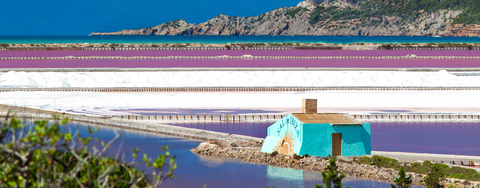Why sea salt?
Natural sea salt isn't simply a combination of sodium and chlorine, but also contains a multitude of natural minerals and trace elements that are vital for the health of the human body! Natural sea salt is actually nothing more than seawater from which the moisture has been removed. If left as it occurs naturally, it is identical to the salts that also flow in our bodily fluids (around 1%). This salt content is just as important to us humans as a constant body temperature of around 37° Celsius.
Industrially produced salt
Interestingly, it was the invention of the refrigerator that robbed salt of its millennia-old, outstanding importance as almost the only means of preserving food. At the same time, however, the Industrial Revolution "invented" a multitude of new uses for salt, such as in the production of plastics, as a raw material for the production of pharmaceuticals, and for water treatment.
To produce it, natural salt is heated repeatedly and washed in saturated salt solution. This involves certain recrystallization and oxidation processes that almost completely remove all vital minerals and trace elements.
To meet the ever-growing demand of industrialization, more and more salt was refined, leaving ever smaller amounts in its natural form – with the result that today, more than 90% (!) of global salt production is used for industrial purposes. Naturally, the highly commercialized production of table salt also had an impact on the price of the product – in the form of extreme cheapening: The cheapest, artisanally harvested, natural sea salt is now 30 times more expensive than the same amount of NaCl!
Since then, both the food industry and the retail trade have benefited from this development and now almost exclusively use the much cheaper NaCl as salt for their products.
Until a few years ago, there was no known good reason to speak against it.
But new research is giving cause for concern: Sodium chloride is an unnaturally isolated compound and has nothing to do with the holistic, valuable, natural salt that is so important for our health. Often, table salt—and that includes all that isn't explicitly marketed as untreated natural salt—is artificially enriched with chemical iodine and/or fluorine. Many of these so-called "organohalogen compounds" are considered allergenic and harmful to health. Furthermore, other additives such as calcium or magnesium carbonate, or even aluminum hydroxide, are often added to table salt as an anti-caking agent to ensure its flowability. (Aluminum is a light metal that, according to well-founded research, can accumulate in the brain and is linked to Alzheimer's disease.)








Comments (1)
Sal de Ibiza – Cristal de la Vida passt hervorragend zum gekochten Frühstücksei. Schön, dass es das gibt!